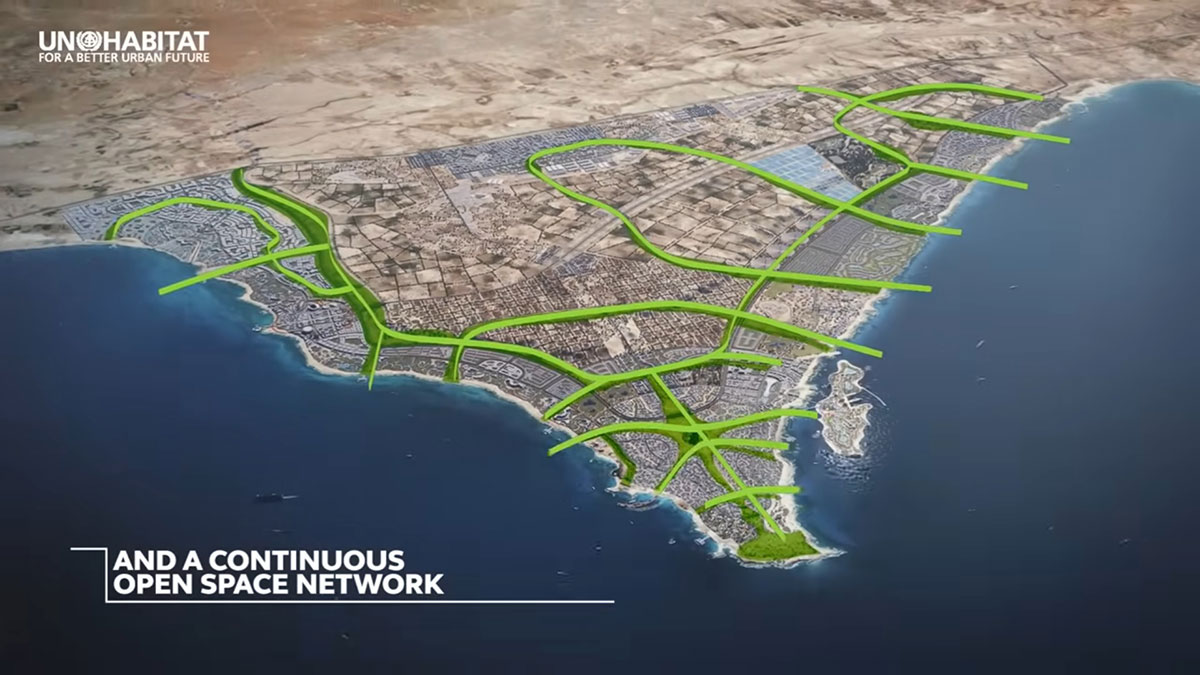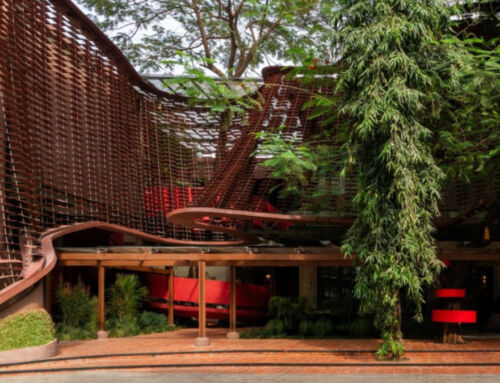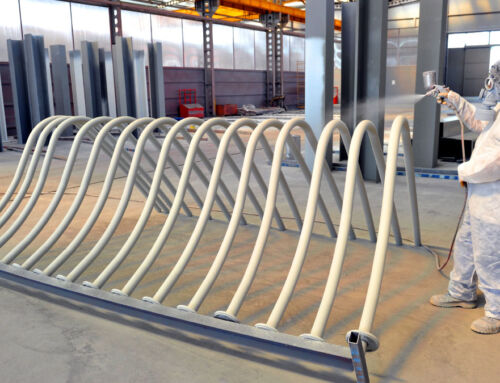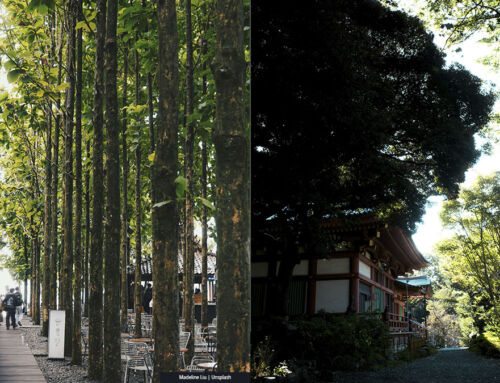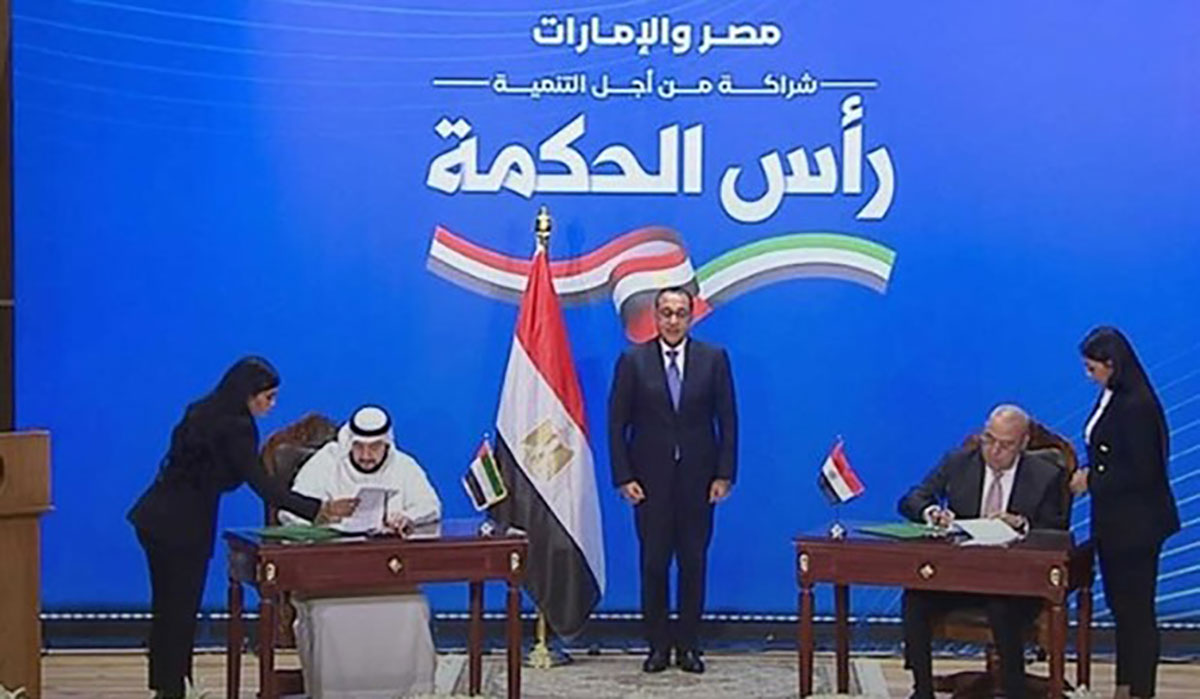
Ras El-Hekma is a cape on the northern coast of Egypt, some 230 km west of Alexandria. It is an undeveloped geographical area with little infrastructure around excellent natural beaches of white sand and crystal clear turquoise blue water. Already in November 2020, UN-HABITAT (the UN programme “to promote socially and environmentally sustainable towns and cities”), announced its collaboration with the Egyptian Ministry of Housing, Utilities and Urban Communities for the urban development of the new coastal town of Ras El-Hekma around the cape of the same name.
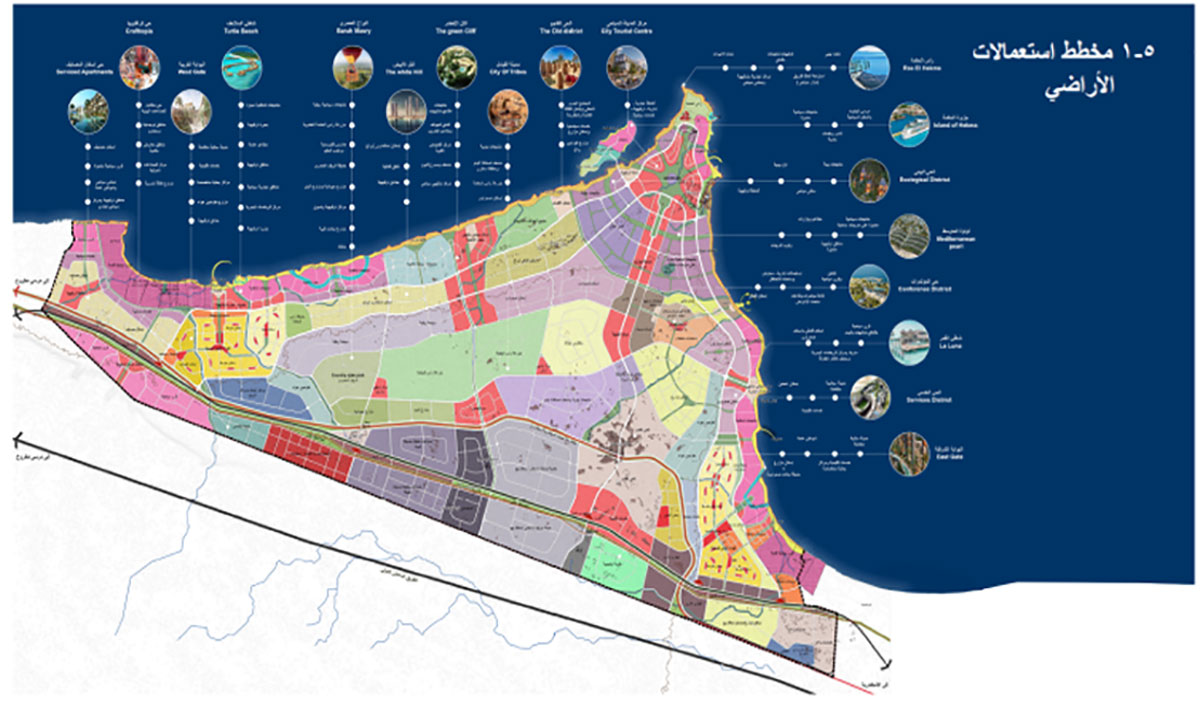
The plan, they said, “goes beyond attracting investors, residents and visitors“, but also seeks to create sustainable conditions for year-round social, environmental, urban and economic development of the north coast region. The new city was planned with 11 districts divided into 3 main areas of activity: tourism in the coastal perimeter, agriculture in its middle zone, and “light industries” in its inner part. In addition to this, there was an efficient public transport system, a cruise-ship port, hotels and resorts on the coast, residential buildings on the beachfront and all kinds of sporting, social and cultural activities.
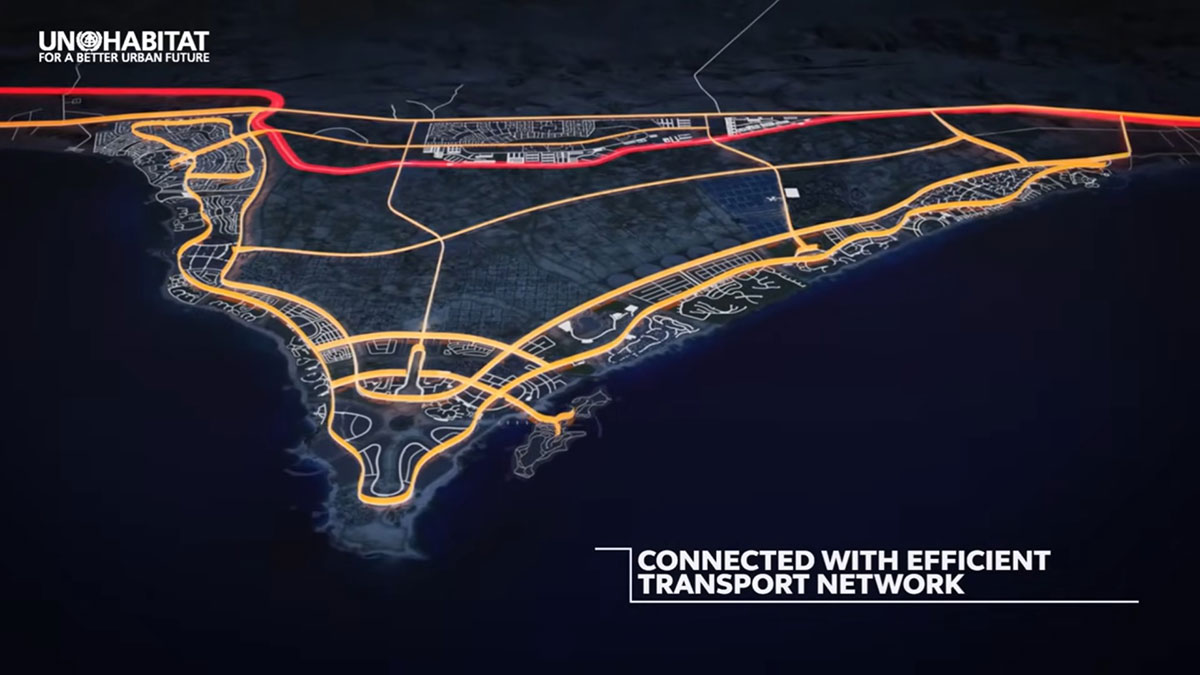
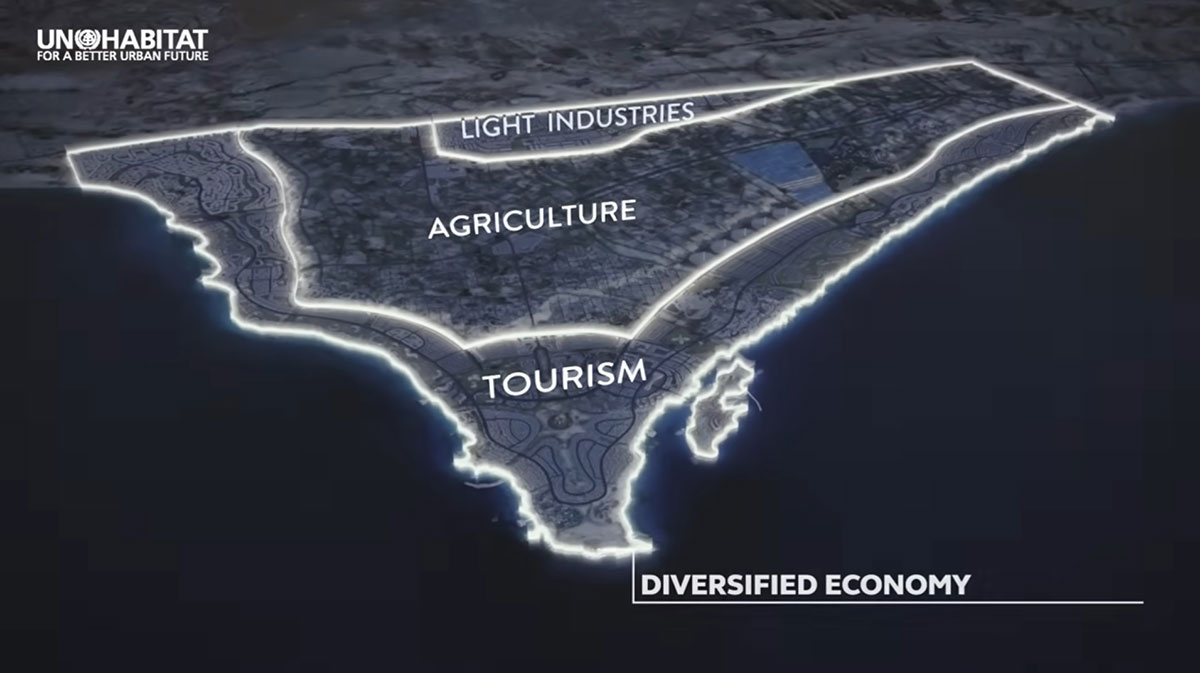
Well, at the end of last February we heard news of a project for which the first stone had not yet been laid. The Cairo government signed an agreement with the government of Abu Dhabi in the United Arab Emirates (UAE), which was announced in all the national and international news media, both specialised and non-specialised. Under the complicated contract, the Abu Dhabi government would pay Egypt’s leading state-owned developer, the New Urban Communities Authority (NUCA), through its sovereign wealth fund ADQ, $24 billion in about two months for the “development rights” to 65 per cent of the 16,400 ha of developable land at Ras El-Hekma. NUCA would retain the remaining 35% of the project. Finally, a contractual addendum would release a further $11 billion deposited with the Central Bank of Egypt “for investment in prime projects” across the country.
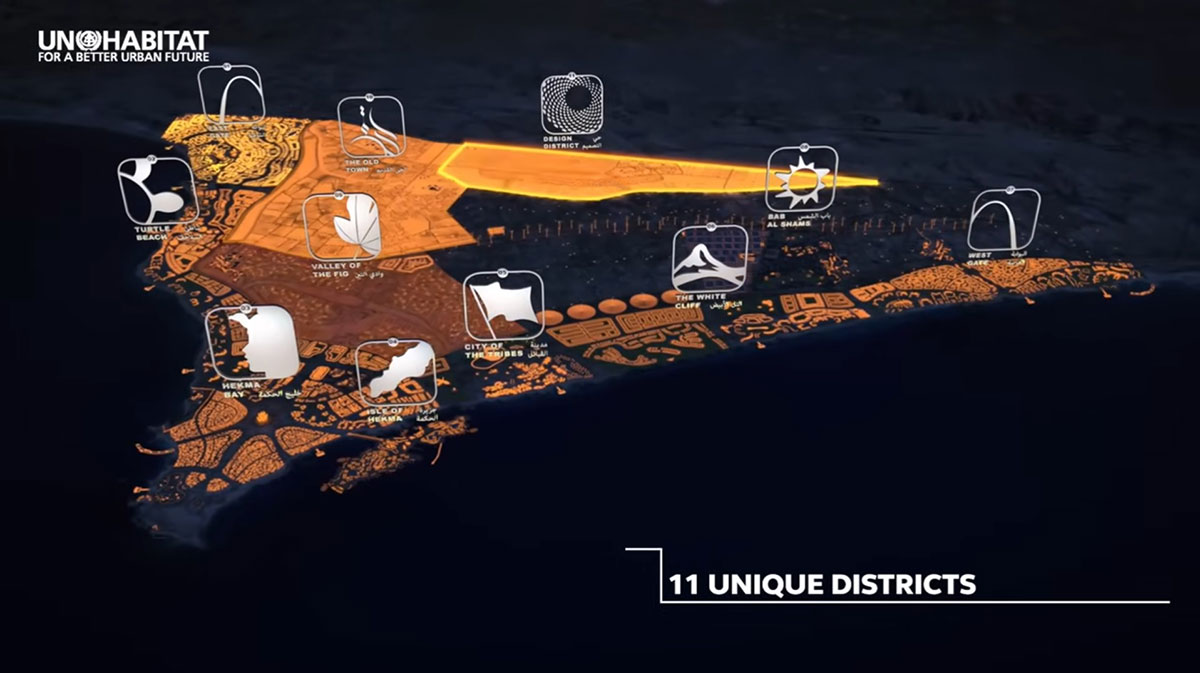
According to media sources, the deal, which represents the largest foreign direct investment in Egypt’s history, will help the government “in managing currency devaluations and securing liquidity, reinforcing its position in talks with the International Monetary Fund”. Indeed, the Cairo authorities hailed the deal as “a model for future investment partnerships that can bring substantial revenues”.
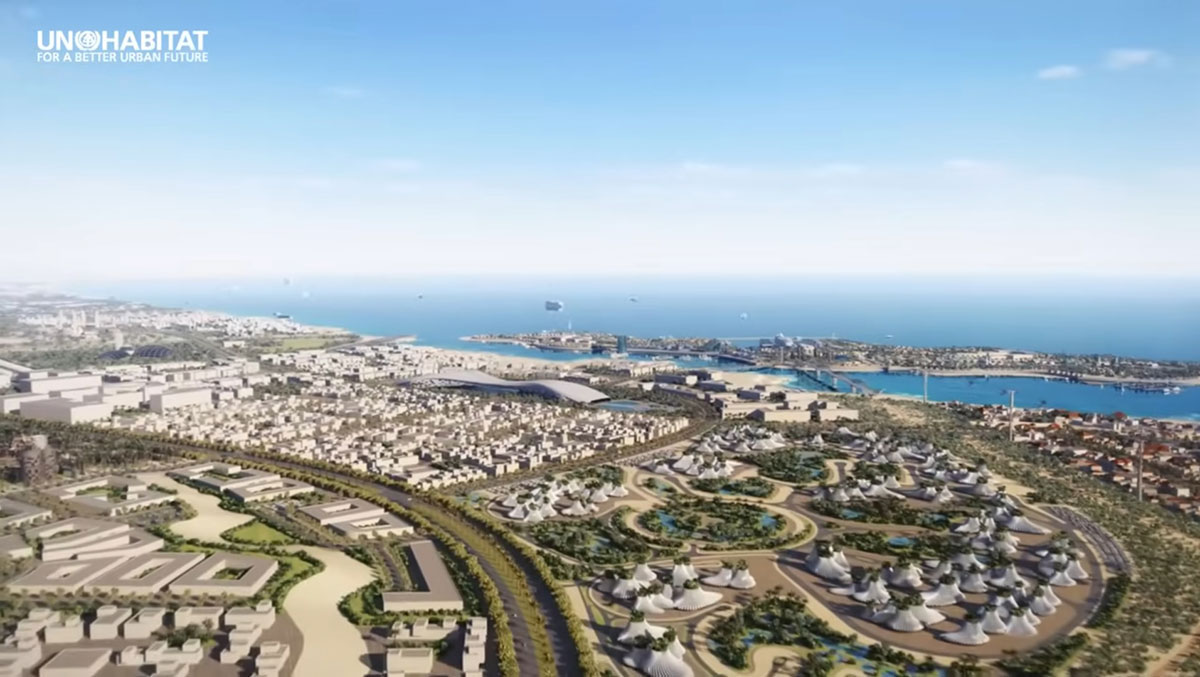
Finally, according to state media agencies quoting sources, Egyptian Prime Minister Mostafa Madbouly said he expects the project to attract “a minimum of $150 billion” during the various phases of implementation. Meanwhile, Mohamed Hassan Al-Suwaidi, ADQ’s managing director and CEO, said the investment reflects its “commitment to developing Ras El-Hekma into one of Egypt’s most attractive coastal destinations through the enablement of mega-infrastructure and development projects“.
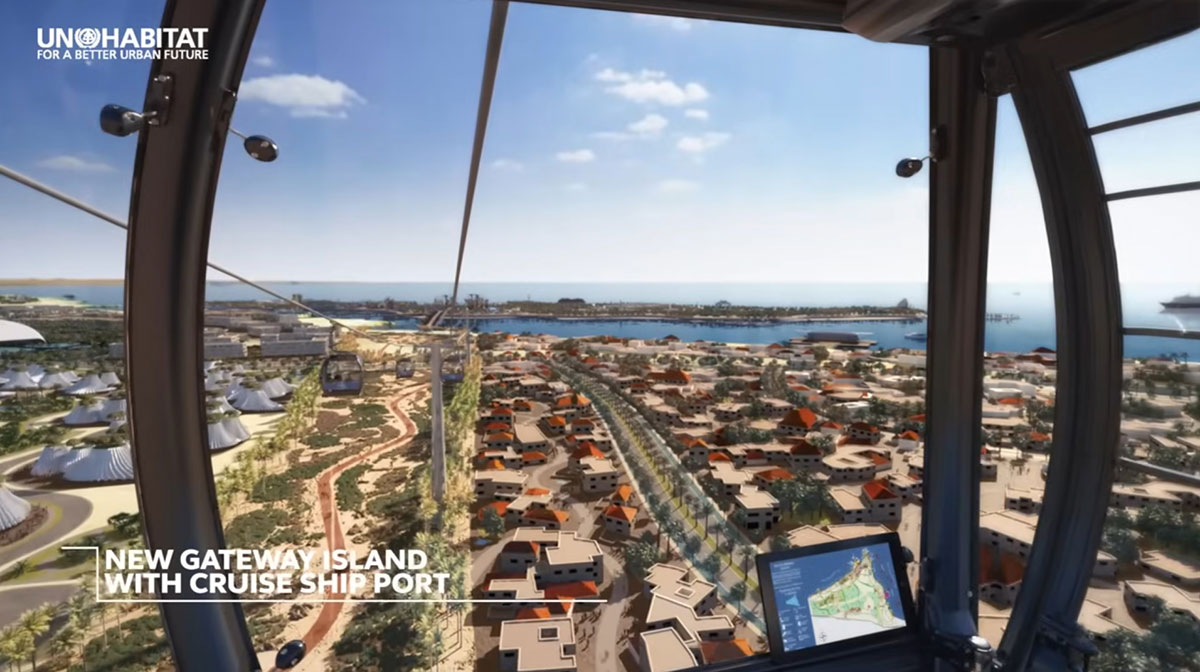
For your curiosity, we leave you with the presentation of the project that was published in 2020 in this VIDEO.
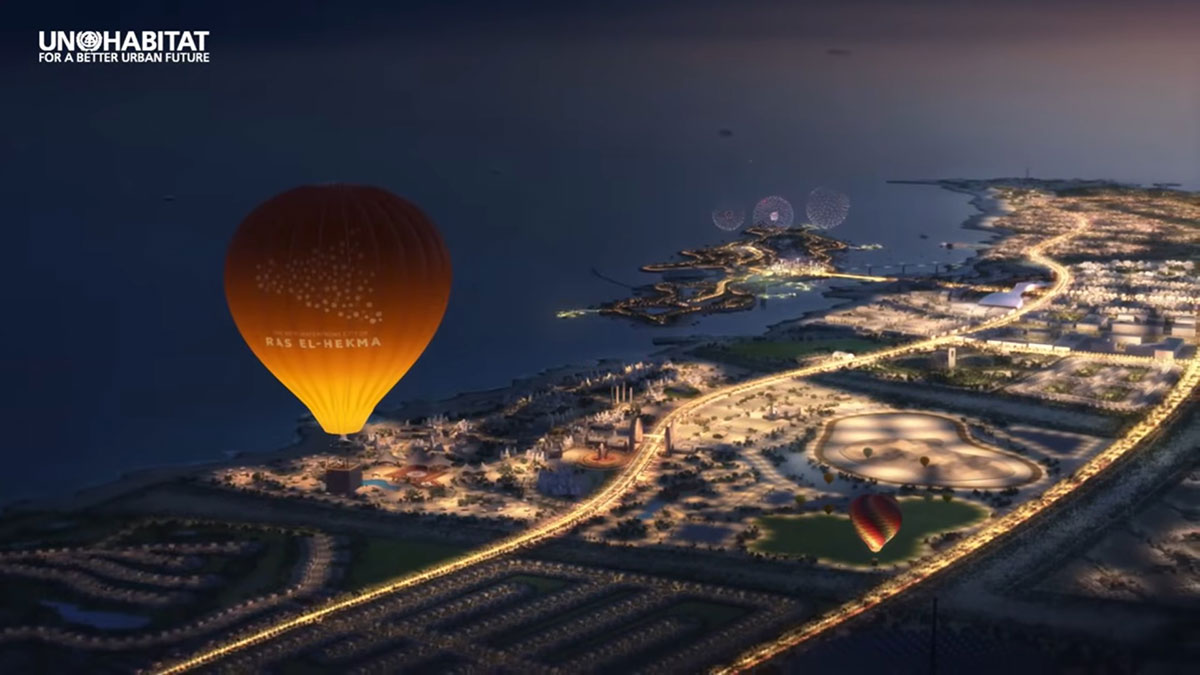
Sources: The Tahrir Institute for Middle East Policy, The New Arab, Wamda, ONU-HÁBITAT.
Images: ONU-HÁBITAT, State Information Service Egypt.


